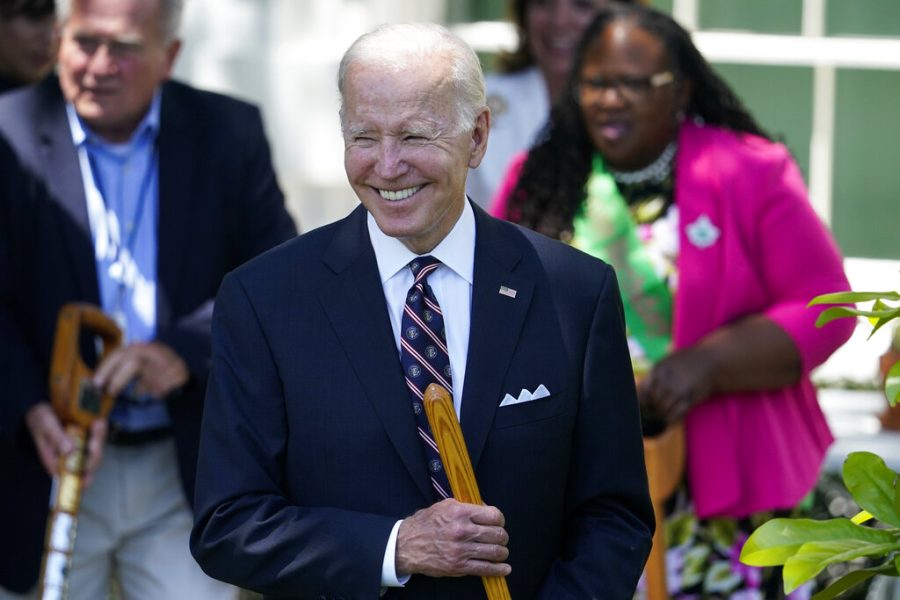Biden fights inflation with new Federal Reserve strategy
Interest rate hikes attempt to rein in high prices
ANDREW HARNIK/Associated Press
President Joe Biden participates in a magnolia tree planting ceremony on the South Lawn of the White House in Washington, Monday.
May 31, 2022
WASHINGTON — Focused on relentlessly rising prices, President Joe Biden plotted an inflation-fighting strategy Tuesday with Jermone H. Powell, the chairman of the Federal Reserve.
Tuesday was Biden’s latest effort to show his dedication to containing the 8.3% leap in consumer prices over the past year. Rising gas and food costs have angered many Americans heading into the midterm elections, risking Democrats’ control of the House and Senate.
Like Biden, the Fed wants to slow inflation without knocking the U.S. economy into recession, a highly sensitive mission that will include increasing benchmark interest rates this summer. The president said he would not attempt to direct that course as some previous presidents have tried.
Biden’s endorsement of the Fed’s policies — a stance echoed by congressional Republican Party leaders — gives Powell important political cover for a series of sharp interest rate hikes intended to rein in higher prices. Yet the higher rates could cause layoffs and even tip the economy into recession.
Stock prices have dropped in recent months because of this concern, though markets rallied last week.
Biden faces an increasingly global challenge: Energy and food costs jumped after Russian President Vladimir Putin ordered the invasion of Ukraine in February and China imposed lockdowns tied to coronavirus outbreaks further straining supply chains. This has left the European Union nursing record inflation and the risks of a recession, while U.S. consumers are increasingly disgruntled by gas prices averaging a nominal record of $4.62 a gallon.
Inflation has shown signs of slowing but is likely to remain far above the Fed’s 2% target through the end of this year.
Republican lawmakers were quick to criticize Biden’s $1.9 trillion coronavirus relief package from last year as pumping too much money into the economy and causing more inflation. That narrative also has held some sway with leading economists who say the financial support was excessive even though it helped the job market roar back.



